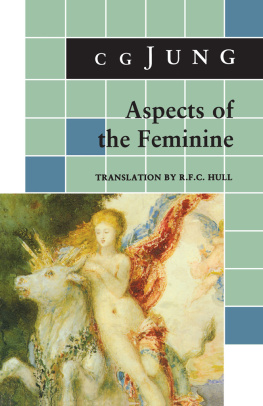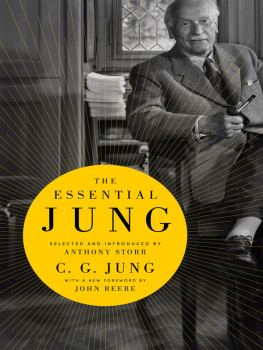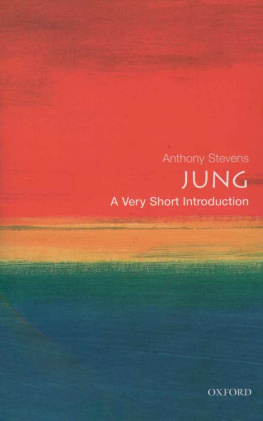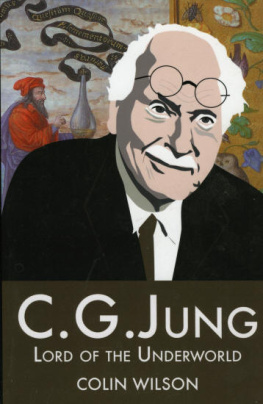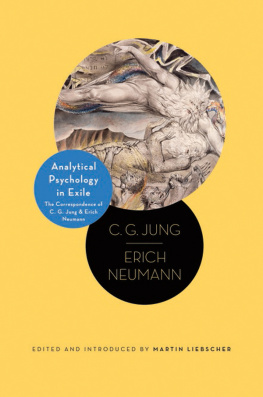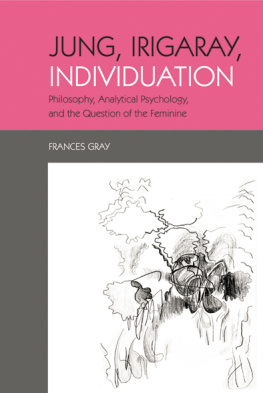Salomes Embrace
C. G. Jung, a man who accomplished a revolution in analytical psychology and made an impact both directly and indirectly on a great number of people, also took women seriously. The release of The Red Book has greatly added to our knowledge of Jungs relationship with the feminine: from his mother, his wife and his extramarital affairs to the effect these had on the formulation of his psychology and on the women who had the courage to explore the need for a spiritual link to Jung and who became known as the Valkyries.
In this revised and expanded study of the many women in Jungs close circle, Anthony explores the women who followed Jung during his lifetime, his need for their company, and their contributions to his work. The book includes studies of Emma Jung, Sabina Spielrein, and Toni Wolff, as well as Jungs mother Emilie, and many other collaborators and followers. It also includes chapters on The Red Book, the Zurich Psychological Club, and Dadaism. Including never-before published primary material, such as interviews with the women themselves, Salomes Embrace assesses their work and its value for the generations of Jungian analysts that have followed, including women who practice depth psychology today.
The book will be of great interest to analytical psychologists and Jungian psychotherapists in practice and in training, and to academics and students of Jungian and post-Jungian studies, gender and womens history.
Maggy Anthony studied at the C. G. Jung Institute in Zurich, Switzerland and the Zurich Clinic and Research Center for Jungian Psychology, and is a former family therapist at St. Marys Medical Center/Maclean Center for Addictions and Behavioral Health in Nevada, USA. She is the author of several books and currently resides in Nevada.
This book arose out of Maggy Anthonys asking what it was that kept those [Jungian] women so vital, so involved in life well into old age. The question prompted her return to Zurich, where she had years earlier been a student at the C. G. Jung Institute. She hoped, through interviews, to find the secrets of their older age. What she discovered resulted in this work.
In many instances women played important and dynamic roles in the furtherance of Jungs public and professional stature. Some would in time gain prominence as therapists, others as founders of psychological clubs, foundations, and institutions dedicated to the promulgation of his ideas. The maintenance and inner workings of many of these organizations was and is performed by women as well, often off-stage. Maggy Anthonys work presents the lives of some of those women, many prime movers of the Jungian community past and present, highlighting the importance of their roles and the impetus behind their dedication. She writes, Jung, from the beginning, took women seriously, mainly perhaps because of his own psychological makeup. He was also a very dynamic and physically attractive man bursting with physical and mental vitality, which made him appear a natural healer of souls.
This work covers a considerable amount of ground from Jungs early involvement with psychology, his exchanges, and feuds with Freud, profiles of his mother, wife, and his soror mystica or mystical sister, Toni Wolff. Most important are the materials gathered from Maggy Anthonys interviews and biographical sketches of the women who played (and in several instances still play) major roles in the continuance and dispersal of Jungs ideas. We learn of Jungs connection with the archetype of the Great Mother through the influence of his mother; that she too had what Jung referred to as his number one and number two personalities, an experience reaching back to his grandmothers Good Monk and Bad Monk personalities. Truly, Jung was impacted by and familiar with the feminine at a number of levels, which could easily explain why so many women flocked to work with him in one capacity or another.
The most poignant section of the work is Ms. Anthonys account of a dream she had of Jung shortly after her difficult major surgery. He said, as they stood side by side, You must come to Switzerland; we have ancestors in common here. She would much later discover that they did share common ancestors. With two young children in tow and with little money, in the midst of a marital separation, she set sail for Switzerland. Upon arriving in Zurich, she felt an enormous sense of homecoming, despite never having been there before. It would be the beginning of a deep journey, in which she not only resolved her post-surgery depression, but learned about the myth that had propelled her life since childhood.
Jung promoted the importance of myth for modern life. By doing so he opened an undiscovered avenue for the therapeutic process, enriching the modern individuals sense of self by connecting their psyches with the transpersonal dimension of the archetypes and the collective unconscious.
This work makes mention of many of Jungs theories, including his investigation of the esoteric topics of the I Ching, alchemy, and astrology, to mention a few. A surprising and welcome part of this work is an astrological analysis of Jungs birth chart by Philip Culjak.
Any study concerned with the history of Jungs ideas and their establishment in modern thought will profit from Ms. Anthonys careful and enlightening survey of the early years of the Jungian community, and especially the support of Jungian women.
Charles Ponc, Ph.D.,
Rosebridge Graduate School, Pacifica Graduate Institute at Santa Barbara, and the San Francisco Art Institute, USA
Salomes Embrace
The Jungian Women
Maggy Anthony

First published 2018
by Routledge
2 Park Square, Milton Park, Abingdon, Oxon OX14 4RN
and by Routledge
711 Third Avenue, New York, NY 10017
Routledge is an imprint of the Taylor & Francis Group, an informa business
2018 Maggy Anthony
The right of Maggy Anthony to be identified as author of this work has been asserted by her in accordance with sections 77 and 78 of the Copyright, Designs and Patents Act 1988.
All rights reserved. No part of this book may be reprinted or reproduced or utilised in any form or by any electronic, mechanical, or other means, now known or hereafter invented, including photocopying and recording, or in any information storage or retrieval system, without permission in writing from the publishers.
Trademark notice: Product or corporate names may be trademarks or registered trademarks, and are used only for identification and explanation without intent to infringe.
British Library Cataloguing in Publication Data
A catalogue record for this book is available from the British Library
Library of Congress Cataloguing in Publication Data
Names: Anthony, Maggy, author.
Title: Salomes embrace : the Jungian women / Maggy Anthony.
Description: Abingdon, Oxon ; New York, NY : Routledge, 2018. | Includes bibliographical references.
Identifiers: LCCN 2017026345 (print) | LCCN 2017039026 (ebook) | ISBN 9781315226316 (Master e-Book) | ISBN 9780415787208 (hardback) | ISBN 9780415787215 (pbk.)
Subjects: LCSH: Jung, C. G. (Carl Gustav), 18751961Friends and associates. | PsychoanalystsAustriaBiography. | PsychoanalysisHistory. | Jungian psychologyHistory.
Classification: LCC BF109.J8 (ebook) | LCC BF109.J8 A683 2018 (print) | DDC 150.1954092dc23
LC record available at https://lccn.loc.gov/2017026345


